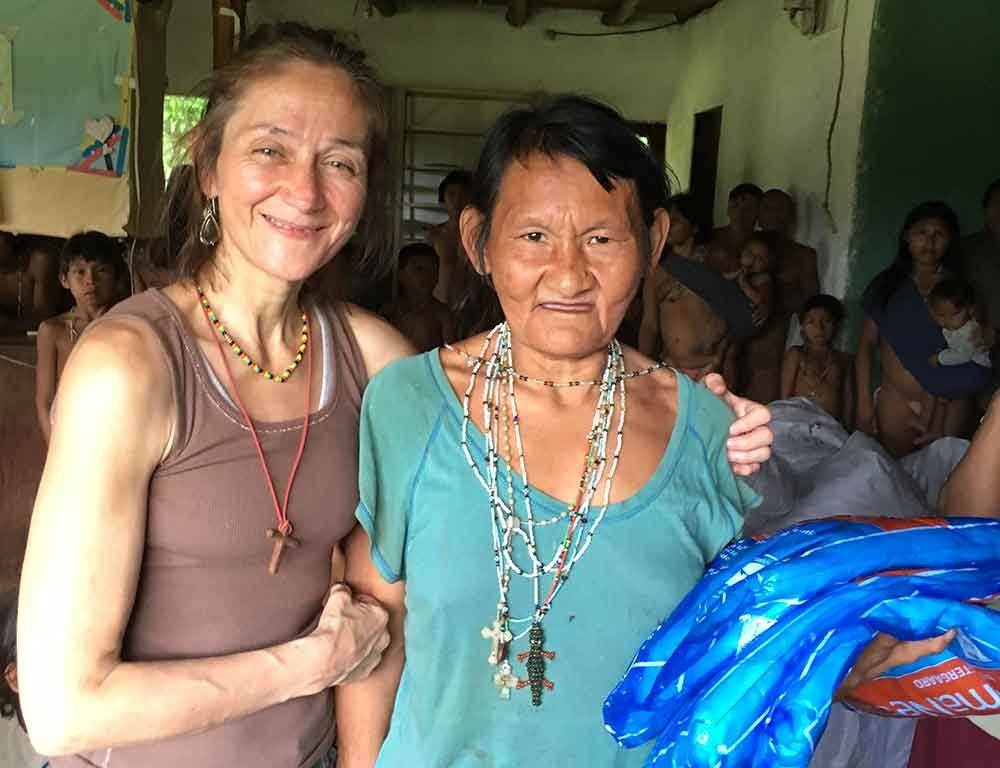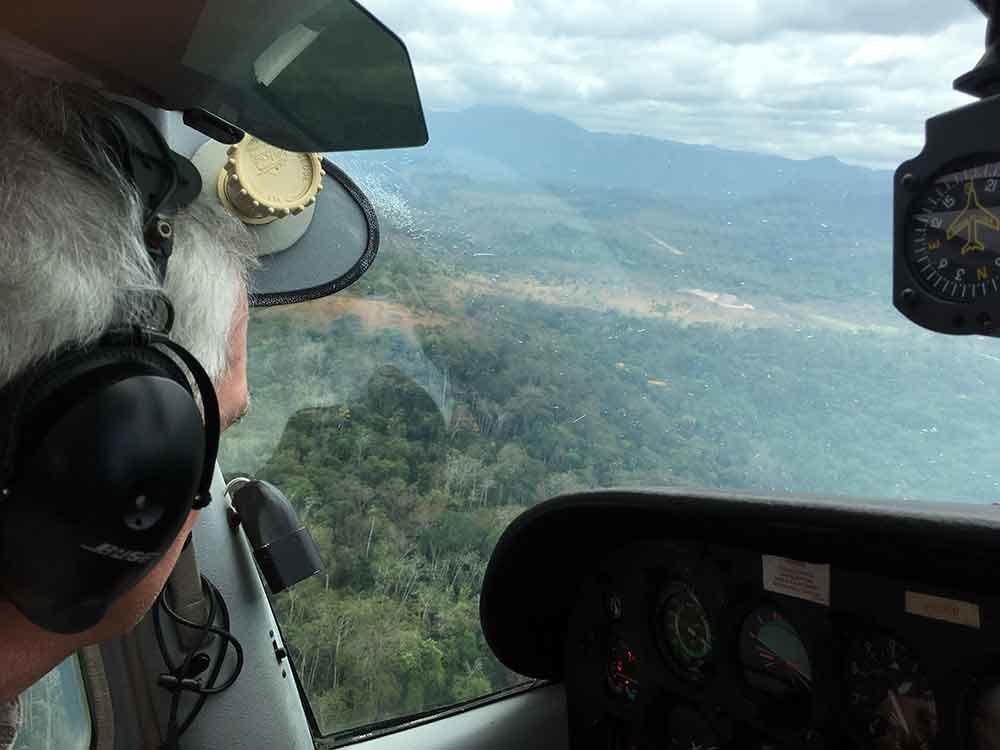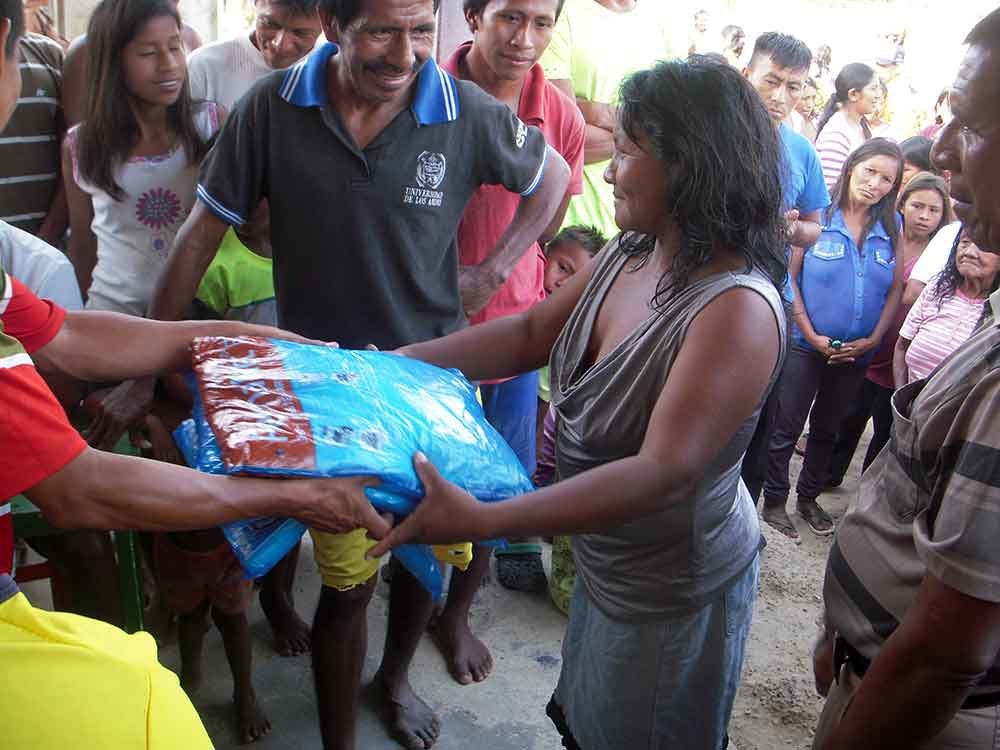By Susannah McCandless | GDF Director
We continue to celebrate that the delivery of all 3,000 insecticidal nets and the accompanying antimalarial medications and medical supplies to Venezuelan Indigenous communities, during a brief window of opportunity in February 2019. That near-miraculous feat was buoyed by your generosity, and the knowledge, determination and goodwill of many actors.
On the heels of our last report, Egleé asked me to particularly recognize the support of Steve, of Rotary International, another committed partner of communities in the region. Steve shared the logistical contacts that made possible the international shipping of the nets, covered the cost of one delivery trip, and donated additional nets for the 300 members of one community who sleep in beds, since our nets were specially designed to protect hammock users.
We are incredibly grateful to have gotten nets into the hands of community members before the elevated malarial risk of an unusually wet summer struck: Venezuela is again experiencing extreme weather, with widespread flooding closing overland routes, and fuel shortages grounding privately-owned planes. That combination has kept us in the planning stages of the next stage of the project.
Project leader Egleé shared with us that it is “basically impossible to enter the communities now…. We received a donation of malaria medicines about a month ago and there was no way to make it available to the indigenous communities. There are two constraints:
1. It is raining like last year too much, unsafe and very complicated to travel with cargo.
2. The government has new bans for private flights and access to airstrips and plane gas. I contacted Enrique [the skilled bush pilot who helped to deliver the nets and medicines this spring] for instance to plan a flight but he is not flying now since conditions are the worst he remembers....”
Another project collaborator, skilled in navigating the complex current environment, had shared with Egleé the procedure to place an official seal on a humanitarian cargo destined for an Indigenous community. That seal enabled us to deliver a truck full of medical supplies and nets overland to Betania in February, through dozens of military checkpoints. That collaborator recently shared their own frustration with their current inability to reach the remote communities with whom they work:
“I tell you that there is not enough gasoline in the country for piston-engine airplanes,” they wrote. “The last logistic scenarios are being closed to continue working in the indigenous communities in the next 3 months and that is very sad for me. I have… large boxes of medicines and supplies that we have not been able to take to the field because the flights are suspended…[and] a kit of medical supplies and several medicines to serve 1000 people x 3 months, where I also include Kayamá, Iguana, Betania. Now we only need the aviation fuel so that the planes return to flight to take those resources.”
Egleé echoes her collaborator's urgency, and desire to continue work in relationship: “In the last three months I could not reach the communities to actually start the new phase of the project. We are waiting to August and more probably September.”
We look forward to updating you again as floodwaters recede and project leaders can rejoin communities in their ongoing, essential work for wellbeing.
Links:
Project reports on GlobalGiving are posted directly to globalgiving.org by Project Leaders as they are completed, generally every 3-4 months. To protect the integrity of these documents, GlobalGiving does not alter them; therefore you may find some language or formatting issues.
If you donate to this project or have donated to this project, you can receive an email when this project posts a report. You can also subscribe for reports without donating.
Support this important cause by creating a personalized fundraising page.
Start a Fundraiser

